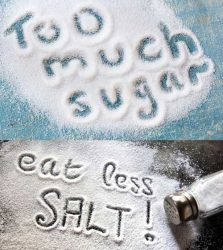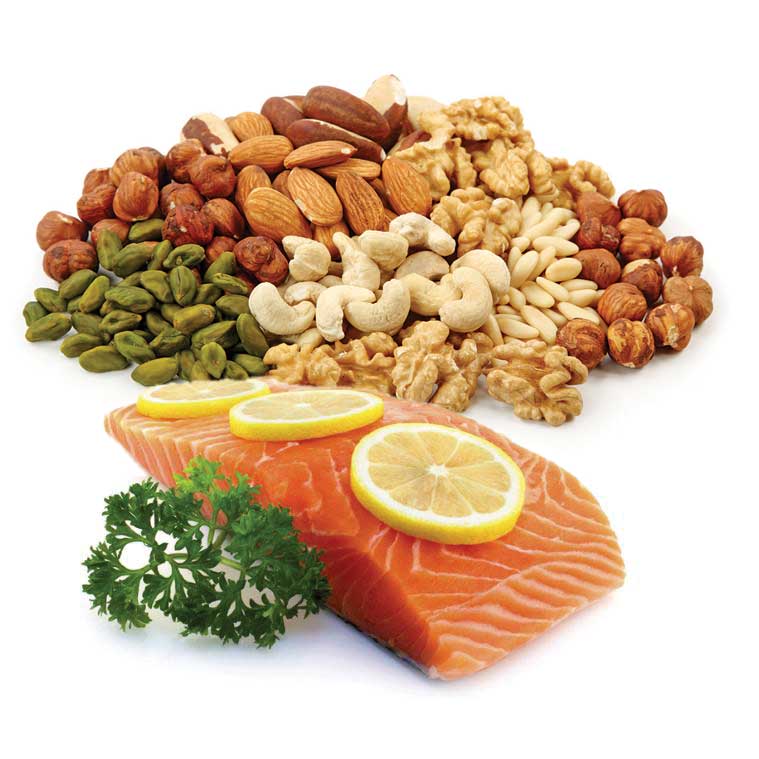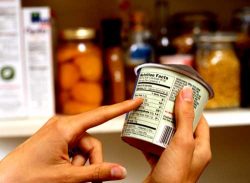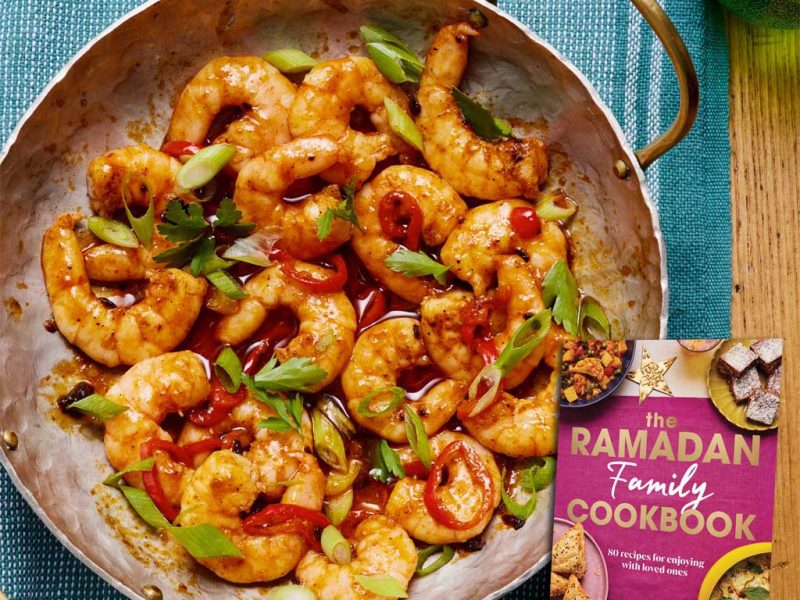Dr Hina’s Five Tips for a Healthy Ramadan Diet
By Dr Hina J Shahid – Muslim Doctors Association
The blessed month of Ramadan is here. A time for reflection, positive action and resolution.
As well as strengthening our spiritual health, Ramadan brings about many physical health benefits too. There is evidence that fasting can help with weight loss, stabilise blood sugar levels, reduce blood pressure and risk of heart disease, boost immunity, control food binges and release endorphins which improve our sense of well being. However, these benefits tend to be offset by the indulgence and gluttony that become a defining feature of Iftar parties.
So what can we do to truly gain all the health benefits of Ramadan? Well, we need to be conscious of our choices, and remind ourselves of the divine and Prophetic teachings. Taqwa (God-consciousness) should extend to everything we do. The Quran commands us to eat not just that which is Halal (lawful), but also Tayyib (good). The Sunnah of the Prophet (PBUH) encourages us to keep our stomach one third empty.
Here are five tips to make this Ramadan one where we make conscious healthy choices.
1. Base your meals on a balanced healthy diet
Carbohydrates – Try and base your meals around long-acting complex carbohydrates, which should form one third of any meal. These are starchy foods which provide slow release energy, and you should opt for high-fibre wholegrain varieties. At suhoor, this includes wholegrain cereals, oats and muesli. At iftar, wholemeal chappatis, bread and pasta, brown rice and potatoes should be included.
Aim to include food from all the major food groups to ensure that your meals are nutritiously complete.
Proteins – Such as pulses, beans, fish and lean meat should be included in every meal, and you can vary vegetarian and non-vegetarian options. Two fish portions should be included a week, one of which should be an oily fish such as salmon (avoid salty varieties), tuna (fresh, not tinned), mackerel, trout and anchovies. These are rich in Omega 3 oils which can be beneficial for the heart and brain development in children.
There is a trend in our communities to eat meat every day, especially red meat. Although red meat is rich in B12 and iron, you should avoid eating more than 70g a day. This is due to a high saturated fat content which raises blood cholesterol, and also because of the link between red and processed meat and bowel cancer. Reduce red meat and substitute with white meat and non-animal sources. At suhoor, you can include eggs and dairy in your meal as healthy protein options.
Healthy Fats – A small amount of healthy fat is essential for good health. Nuts, seeds, oily fish, olive oil, avocadoes can be added to meals. For example, you can add seeds and nuts to your cereal or have avocado with whole grain bread at suhoor. Avoid foods that have been fried or are rich is saturated fats e.g. crisps, biscuits, pastries, samosas, pakoras. There exists a strong temptation in our communities to fill the iftar table with fried snacks “otherwise it doesn’t feel like Ramadan”. Too much fat is associated with heart disease, stroke and cancer and saturated fat should be limited to a maximum of 10% of your food energy. Why not opt for healthier snacks like a handful of nuts and seeds or fruit and vegetables with homemade dips.
Fruit and Vegetables – It is recommended to have at least five pieces of fruit and vegetables a day, although recent research suggests at least seven portions. These are rich in antioxidants, vitamins, minerals and fibre, and can reduce the risk of several chronic diseases and cancers. In Ramadan they can also help avoid constipation, which is a common complaint. Ideally fruit and vegetables should be eaten fresh, be in season and locally grown to get maximum benefit. However, frozen and tinned fruit and vegetables (avoiding salty or sugary preserved media) also count towards your one-a-day. It is currently fashionable to have smoothies which can sometimes be high in calories and sugar, so it is important to be mindful of this. Try adding a creative salad with your iftar, and add fresh or dried fruit to your cereal at suhoor, or have these as snacks during non-fasting hours.
Milk and Dairy Foods – These are high in protein and calcium, and vitamins such as B2, B12 and vitamin D. They are essential in keeping bones and teeth strong, as well as helping the body grow and repair. Foods include milk, yogurt and cheese. It is important to opt for low-fat and low-salt options. Milk and yogurt are also fluid-rich and can help with keeping you hydrated during Ramadan. Butter and creams are also dairy products, but as they are high in saturated fats, are best avoided.
2. Use healthy cooking options
Use lean cuts of meat and avoid processed foods high in salt, saturated fat and chemical preservatives. Shallow fry instead of deep frying, or avoid frying altogether and replace with baking, steaming and boiling. Avoid eating sugary sweets, but if eaten then opt for milk- based sweets and puddings which have a lower sugar and fat content. Planning your meals and recipes in advance can help you avoid last minute panic and reliance on takeaway or processed foods which are nutrient-poor but high in calories, salt, sugar, fat and preservatives resulting in weight gain, nutritional deficiencies and chronic illnesses.
Too much fat is associated with heart disease, stroke and cancer and saturated fat should be limited to a maximum of 10% of your food energy.
3. Watch your portion sizes and calories
It is tempting to pile up our plates at iftar and suhoor. This is why the majority of people gain weight during Ramadan instead of losing it. The recommended calorie intake for men is 2500 Kcal (10,500KJ) and for women 2000Kcal (8,400KJ). Learn to read nutritional labels and consider using online tools or smartphone applications to count your calories. You can keep within the recommended calorie intake by:
- Counting your calories
- Keeping to recommended meal compositions
- Avoiding high-calorie nutrient-poor foods
- Getting enough fluids
- Having soups and salads for starters
- Avoiding dessert and sugary foods and drinks
- Having home cooked meals instead of takeaways
4. Keep hydrated
About two thirds of the body is water and you should aim to drink around two litres of fluid a day, even during Ramadan. Having small amounts frequently during non-fasting hours is more sensible than downing a litre at iftar and suhoor. You can take a bottle of water with you to Taraweeh and sip on this during prayer breaks. Consuming fluid-rich foods such as cereals, porridge, soups, stews and yogurts can help you get fluids as well as the nutritional benefits of these foods. You can have unsweetened herbal tea with iftar or suhoor (depending on preference) as caffeine is a diuretic and stimulates water loss. Fizzy drinks which are high in sugar, calories and preservatives should also be avoided. Starting iftar with drinking fluids and having soup can also prevent over indulgence.
5. Avoid excess sugar and salt
Too much sugar is a risk factor for diabetes and tooth decay, and sugary foods are often high in calories contributing to weight gain and heart disease. It is recommended to not have more than 60g/day of sugar.
It is recommended to not have more than 60g/day of sugar … You should not have more than 6g/day of salt.
Dates are an excellent source of natural sugar, are fluid rich and provide a burst of energy as well as being rich in vitamins and minerals. Salt increases blood pressure, and can also make you feel thirsty during Ramadan. You should not have more than 6g/day of salt. To add flavour, you can consider substituting salt with natural herbs, spices and lemon juice, being careful too avoid these in excess as they can cause heartburn and indigestion.
 Take home message: be creative and conscious!
Take home message: be creative and conscious!
Use this advice to be creative and conscious about your health this Ramadan. Often we enter Ramadan resolving to make positive changes that stick with us for the rest of the year, such as waking up for fajr, making time for reading the Quran every day, doing dhikr [remembrance of Allah], amongst many others. Why not also use it to adopt healthy eating behaviours that you can carry forward and encourage friends and family to do the same?
Poor diets are estimated to be one of the biggest risk factor for chronic illnesses. As conditions like obesity, heart disease, diabetes, high cholesterol and hypertension reach epidemic proportions in our communities, let’s use the Holy Month to change this for ourselves and for future generations to come.
If you suffer from long term medical conditions or have food intolerances or allergies, then please consult with your GP or specialist health professional.
References:
NHS Choices: The Eatwell Guide and Healthy Ramadan
 Dr Hina J Shahid is a GP working in London and Chairperson of the Muslim Doctors Association.
Dr Hina J Shahid is a GP working in London and Chairperson of the Muslim Doctors Association.
Dr Hina graduated with Distinction in Medical Sciences from University College London. She also holds a Bachelor of Science in Pharmacology from University College London and a Masters of Science in Public Health from the London School of Hygiene and Tropical Medicine. She has an interest in humanitarian relief work and is involved in a number of charity projects, having worked abroad and in the UK as a volunteer. She also has an interest in medical education and is a clinical tutor at Imperial College London. In her spare time she enjoys reading, travelling and learning languages. She is currently learning Arabic and can also speak French, Urdu and Hindi.






